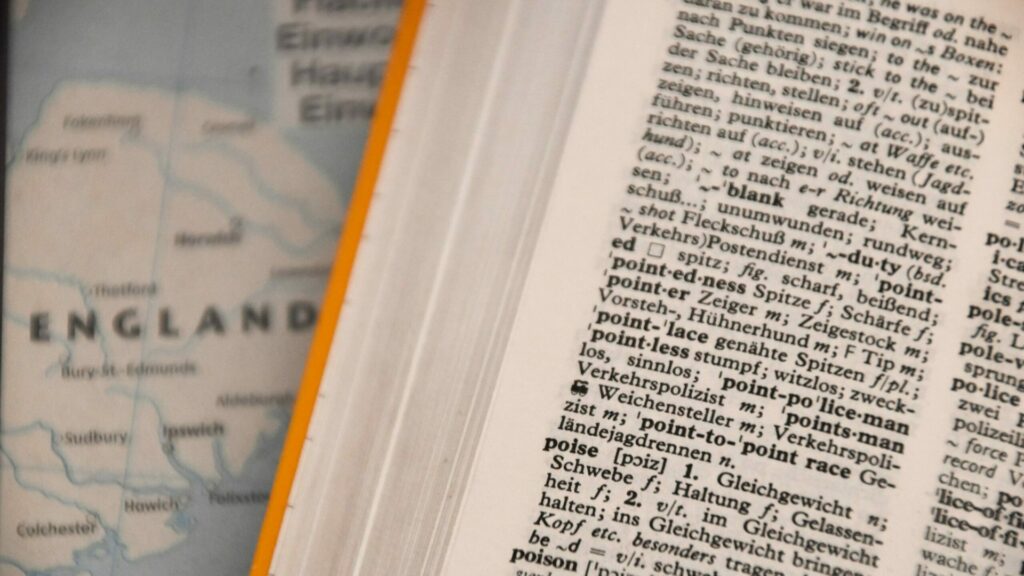polyglot, [ ˈpɒl.ɪ.ɡlɒt ] noun, someone who can speak or use several different languages
So I’ve spent the past week thinking more deeply about languages, how and why we learn them, as well as what impact they’ve had on my own life. I’m about to share all those thoughts with you here.
My personal experience with foreign languages goes way back. While my mother tongue is Romanian, I started learning English at 3, German at 6, French at 11, and Spanish at 17. I kept learning languages throughout school and in language-learning summer camps for two reasons: first and foremost because my parents always stressed how important foreign languages are, but also because I started noticing a certain inclination for it early on. It has never been difficult for me to learn languages and I soon found myself thinking and dreaming multilingually.
A different language is a different vision of life.”
Federico Fellini
There are many reasons why I find languages fascinating, but perhaps the most important one is that I often stumble upon expressions and word combinations in foreign languages that express things exactly as I understand and think of them in my own head. It is most fulfilling when I speak to people who know the same languages that I do, because I then have the freedom to express my thoughts in the most accurate way by combining two or more languages. It’s also very much fun!
Learning foreign languages is a great mental exercise and brings valuable life skills. If I were to just jot down a few, it helps you:
- read and listen to content in those languages, which opens up doorways to new perspectives on the world and current events which would otherwise remain shut
- break away from prejudices about foreign people and cultures
- exercise and improve your memory
- break away from the fear of making mistakes
- come up with creative solutions when you don’t know the exact answer
- communicate precisely (by learning grammar) and be understood correctly (by using the right vocabulary)
If I am honest, I must also mention a potential drawback of learning so many languages at a young age, and that is the fact that I sometimes struggle to use only one language without mixing up vocabulary from all of them. Words in all these languages come up in my mind as I am speaking, and I have to choose only the ones in the target language. I have been told that this affects the rate at which I speak, even in my mother tongue. I’m not entirely sure whether it’s because of the multitude of languages, or if that’s simply how I speak, but it’s something to be wary of when learning languages. A good way to counter this is to force yourself to not mix languages with one another, despite it being so much fun to do so… In any case, I’m still working on speaking faster, because it’s a skill I really need to develop for both real life and my Youtube videos (but you can always listen to them at 1.5x 😅, see favourite ideas below for more on this!).
He who knows no foreign languages knows nothing of his own.
Johann Wolfgang von Goethe
Besides being a healthy work-out for the brain, languages will open up unexpected and invaluable opportunities. When time came to apply to Cambridge, I asked myself what was the thing that I had done all my life and that I could pitch most effectively in my personal statement: and that was language learning, with all the literature and culture that comes with it. That was my thing, so it came naturally to apply for that. When I got in, it was the first time when I realised how far one could go with languages alone, and that I had made a passion and a talent into a potential career path. When I applied for an Erasmus+ internship in Vienna on my Year Abroad, I got the job mainly because I could speak German, Romanian, and English very well. In fact it was the first time when my mother tongue, Romanian, made the difference, but I could not have done the job knowing just Romanian (would most probably not have even known about the position).So I can definitely say that being a polyglot has worked wonders for me and I totally recommend that you take up a foreign language as soon as possible if it’s your first one, or that you keep improving the languages that you’ve already been studying. It will pay off soon.
And one more thing: it’s never too late to become a polyglot. My father learned German, Italian, and Spanish after the age of 45!



